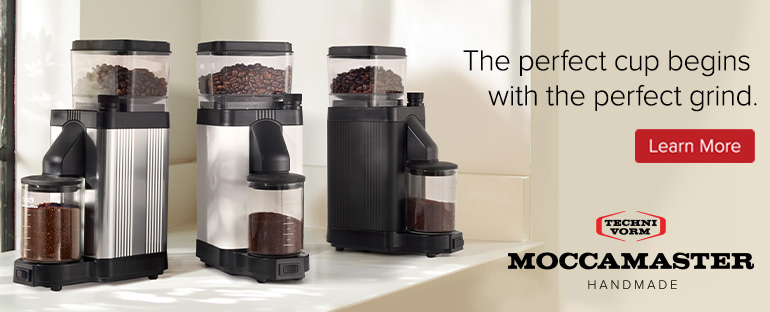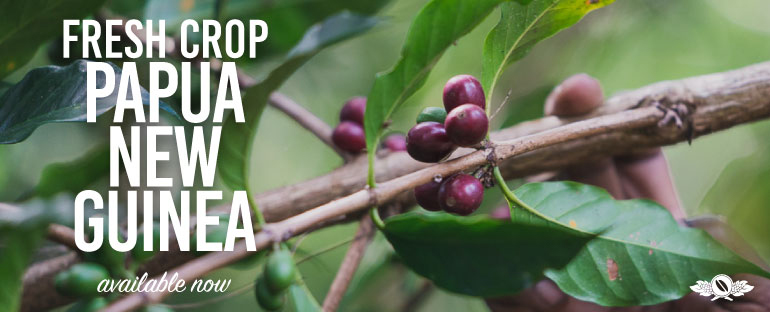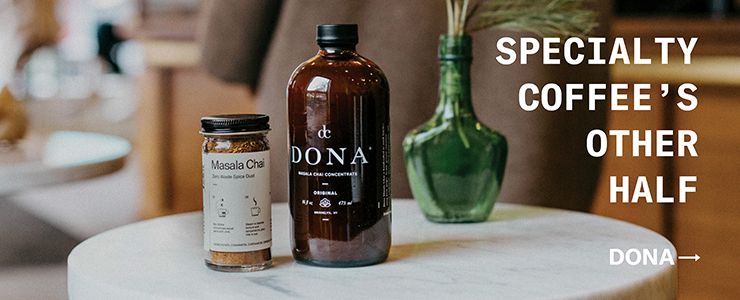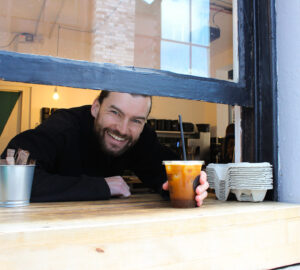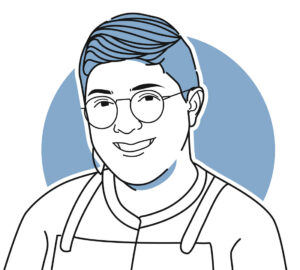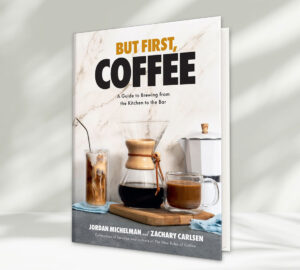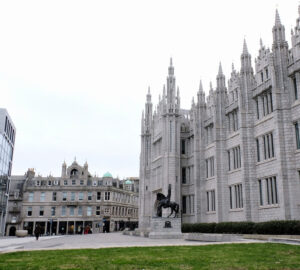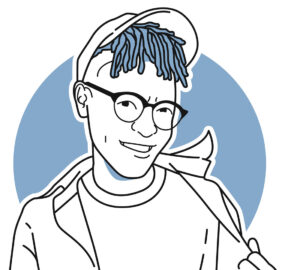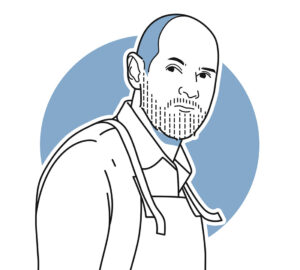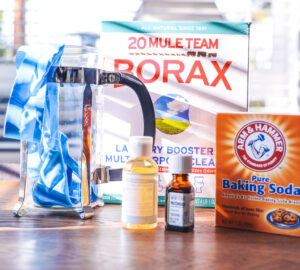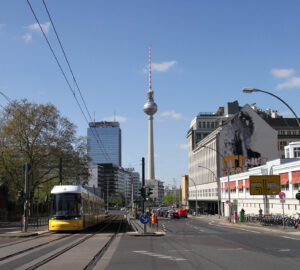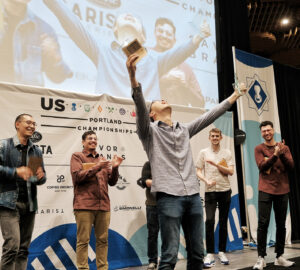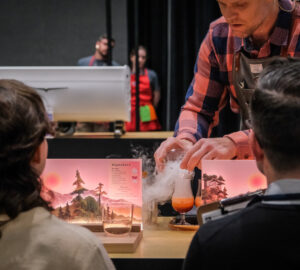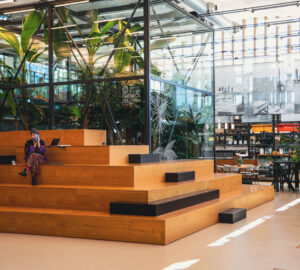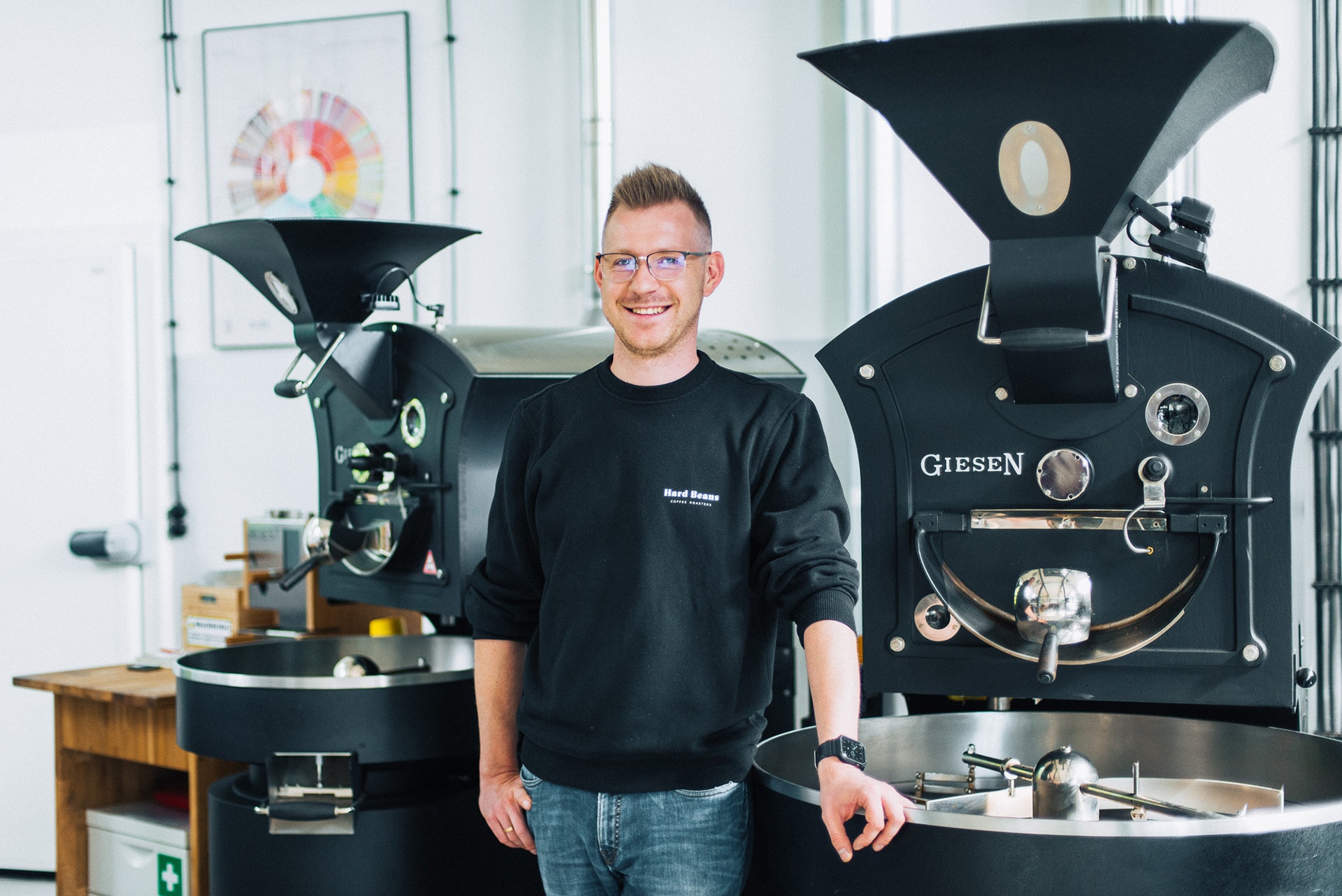
Krzysztof Barabosz wears many hats. A self-professed “geek” with a university degree in Product Engineering and Science, Barabosz is the Head of Coffee, Head Roaster, and Green Coffee Buyer at Hard Beans Coffee Roasters, a leading speciality brands in Poland’s thriving coffee scene. His myriad roles include working on scientific research, new coffee products, and sustainability programs. He also helps manage the marketing and PR side of the business, planning campaigns, overseeing social media channels and the Hard Beans website.
Barabosz is well-known and respected in the Polish coffee community. He has organized over 100 industry events, hosted 28 national coffee competitions, and volunteered as a sensory judge. He regularly speaks at coffee forums and conferences online and around the world, and was—until very recently—the Vice President and Events Coordinator at SCA Poland, a role he held for four years. In the fast-growing Polish coffee culture, it seems like all roads lead to Barabosz.
He and I first in Milan at HOST 2019, the coffee industry’s premier biannual exhibition of new technology and products. He was there to present HardTank, a Fast Nitro Cold Brew Maker that makes a coffee drink in just 30 minutes. The system went public in 2020, nabbing a Sprudgie Award nomination for Best New Product. After a chat and some coffee tasting, I left Barabosz with a promise to visit him soon at Hard Beans Coffee Roasters. This past September, after travel restrictions were lifted in Poland and it was safe to meet, I drove from my home in Wroclaw to Opole to spend a day with him and the rest of the team and learn more about the many projects he’s working on.
This interview has been edited and condensed.
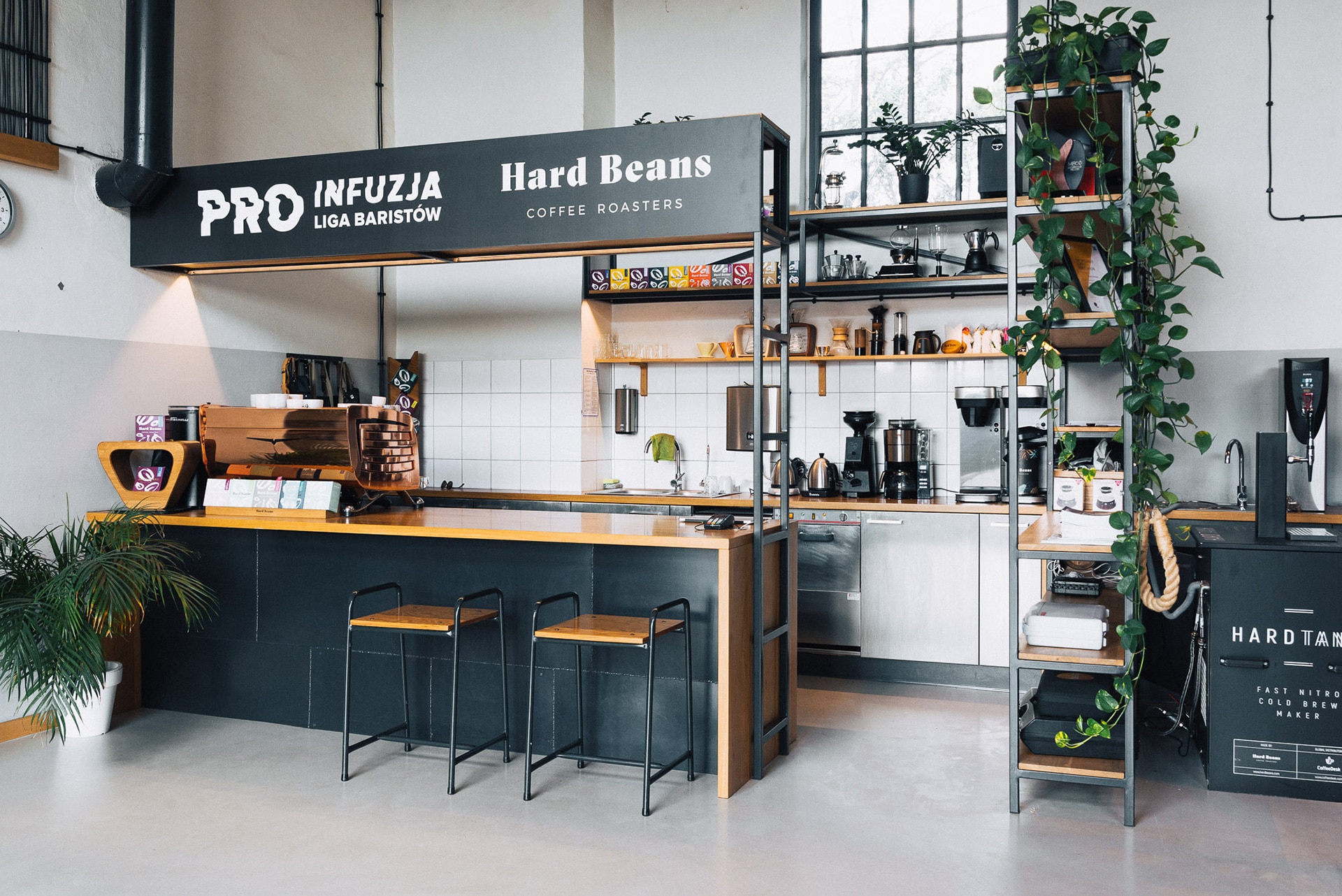
Giulia Mule: Hey Krzysztof! Thanks for speaking with me today. How did you get into coffee? Can you give us a bit of background on your career so far?
I started working as a barista in a chain coffee shop while studying at Opole University of Technology, and then in 2010 I got a job working for Artur and Kasia Porada at Kofeina Art Café. There were just a handful of speciality coffee shops like us in Poland at the time. Kofeina was one of the first cafes to offer manual brewing devices. Artur and I were using AeroPress, Chemex, Syphon, etc. that we ordered from the US (because you couldn’t buy them here at the time). Since the beginning, we wanted to share this knowledge with other coffee lovers and so we launched Academia Kofeiny to teach about speciality coffee and do cupping, which was very new for people in Poland at the time. We organized over 20 workshops for hundreds of people, both at Kofeina and at cafes around Poland. I also took part in a few coffee competitions at the start of my career, one of them was Polish Cup Tasters 2011 where I placed 4th—but I feel more comfortable on the other side of the counter as an organizer.
You are one of the co-founders of Hard Beans. How did the brand come about?
I was working at Kofeina as head barista and coffee shop manager (with Artur Porada) for several years, and also organizing workshops at Academia Kofeiny. Kofeina’s popularity in the Polish speciality coffee scene kept growing, and in 2016 it was awarded Cafe of the Year by SCA Poland. The next step was starting our own coffee production. Artur and I had this idea of opening a roastery, so we found investors and then applied for several European grants to get us started. We opened Hard Beans Coffee Roasters here in Opole in 2017, with a focus on quality, innovation and research. We [had] sales from day one, because everyone in coffee community knew us from Kofeina.
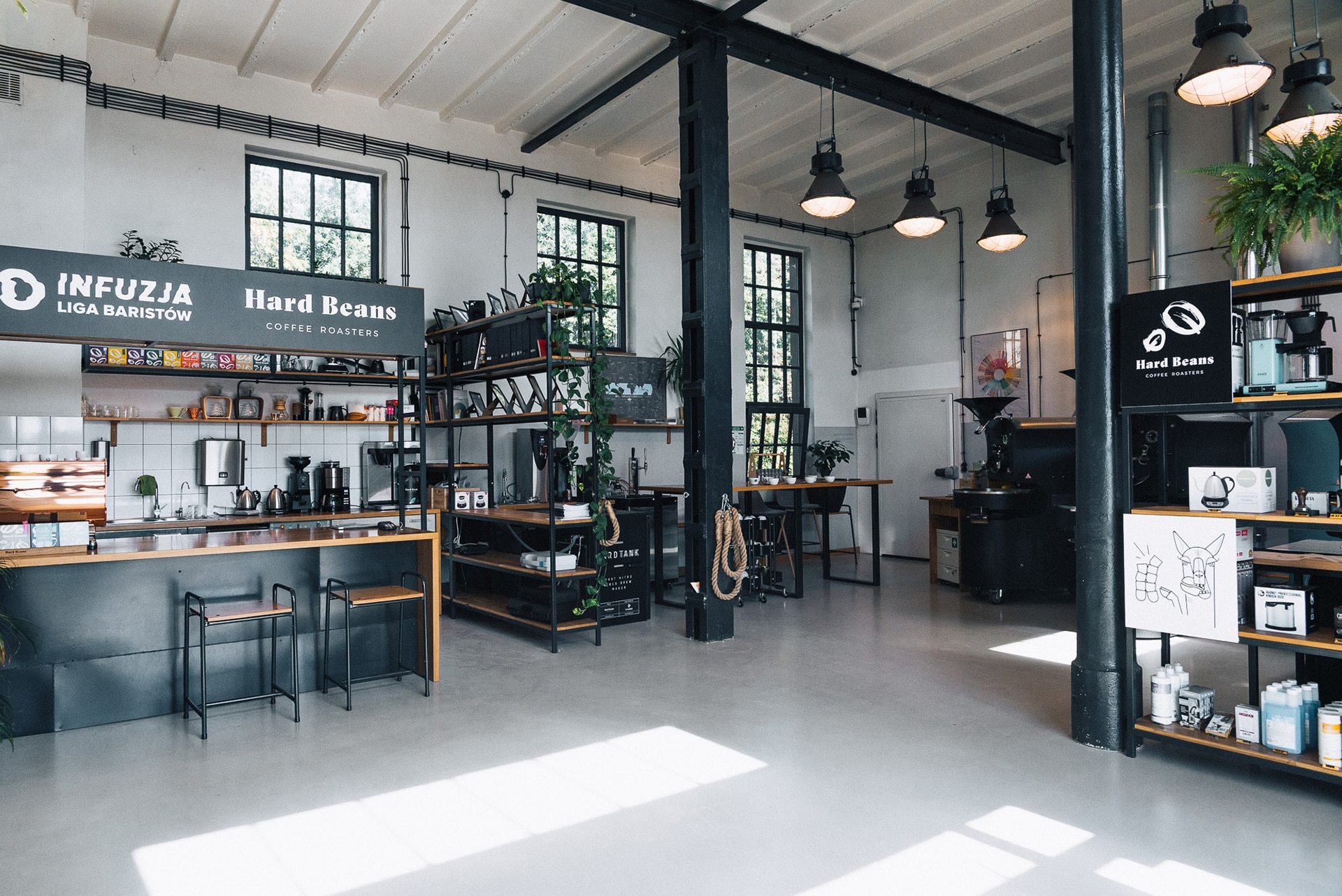
The space at Hard Beans Coffee Roasters HQ is really impressive. Can you describe it for our readers?
It’s a 600-square-meter facility near Opole train station, which used to be a storage and space for the railway workers to change before going to work. It was very dirty, old, and messy, so we gave it a full makeover and changed almost everything. We spent half a year just doing the [electrical] work, because we had this idea to keep the old industrial ceiling frame. The big industrial lamps you see hanging from the ceiling are originals from 1970s Poland. Even the power cords are old-school Polish. While building this space and arranging the roastery, our goal was to make it very good in terms of quality and cleanness. We knew we wanted space to do research here, further our knowledge in coffee through scientific research and inventions of new prototypes. We are going to open a new factory next year, 30km south of Opole, for the development and production of HardTank cold beverages.
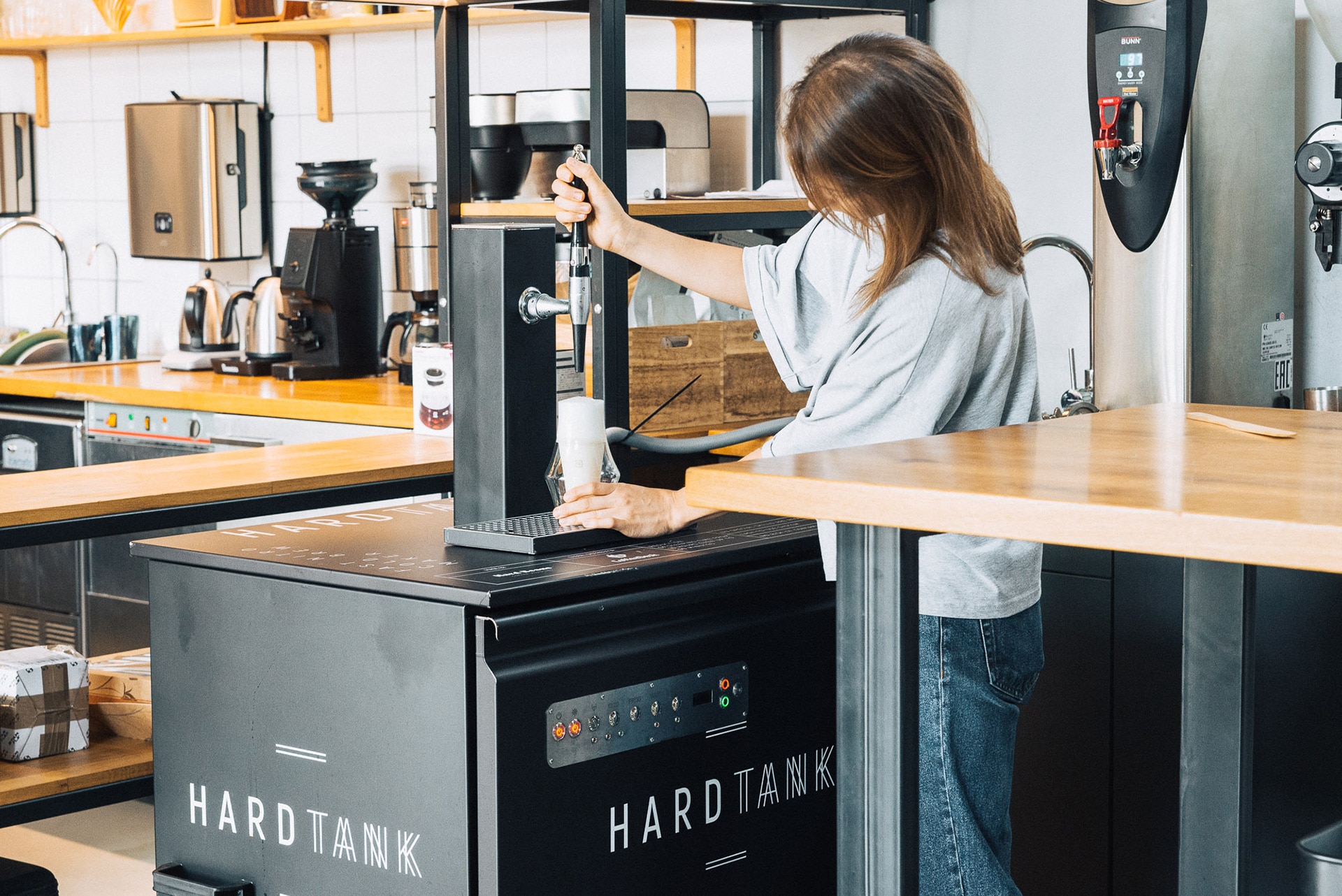
And what is HardTank?
HardTank is a fast nitro cold brew maker that works in just 30 minutes. It’s an innovative technology we developed with a team of students and professors of the University of Technology (Mechanical department) and the University of Opole (Biotechnology department). We recently received the patent from the European Patent List and launched our first product: Nitro Cold Brew Stout. It’s a delicate beer with a coffee aroma and aftertaste. We created it with Browar Szpunt, a Polish craft beer brewery, using Yellow Bourbon Brazilian coffee from Fazenda Samambaia.
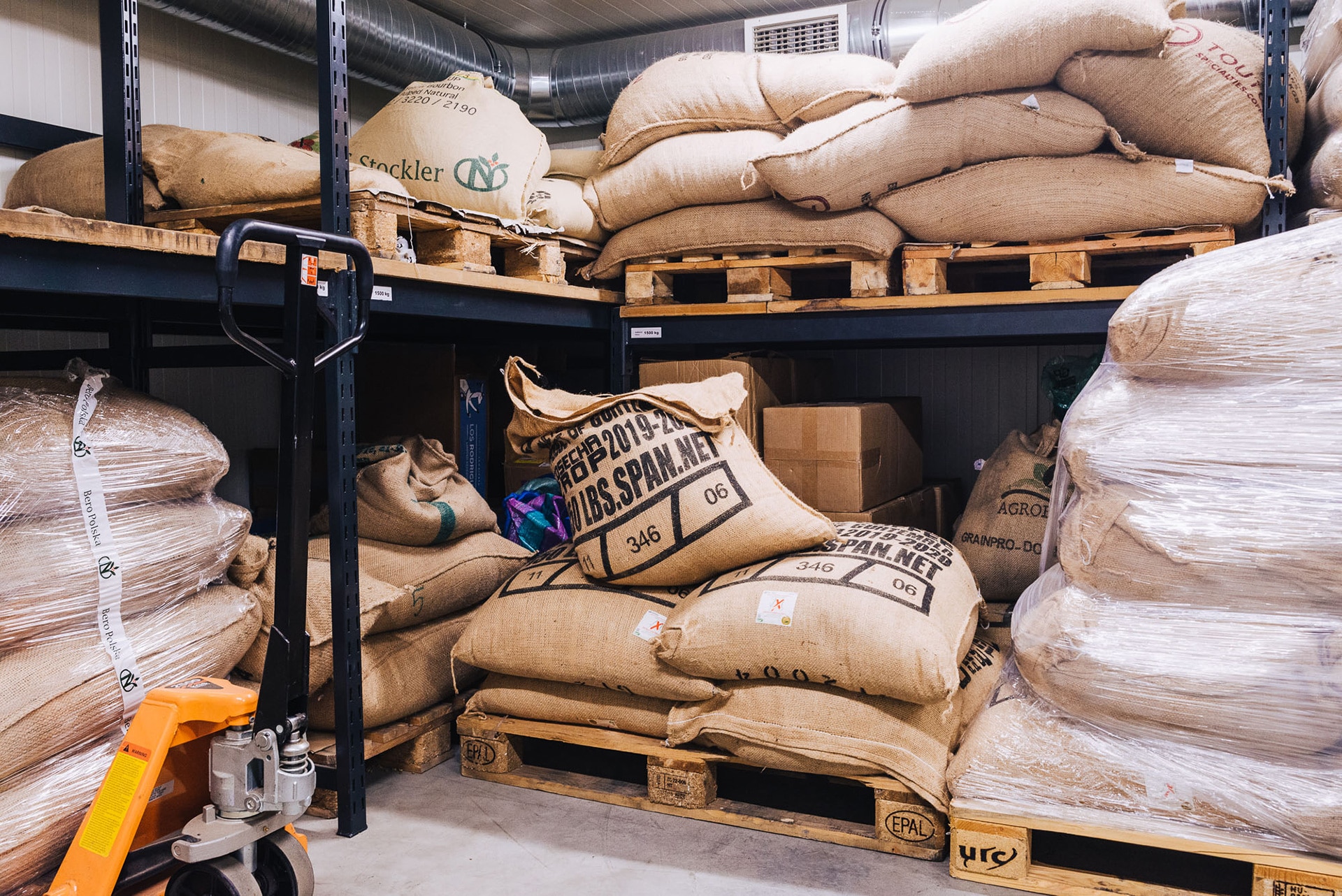
Tell us more about the green coffee storage research you are working on.
At the moment, we’re working on five different projects funded with European grants. One of them is the Green Coffee Project: an industrial research to develop the best specialty-grade green coffee storage technology, to increase quality and freshness control of the target product. We picked one coffee from Huehuetenango, Guatemala by Finca La Maravilla (washed) and one from Finca el Oregano (natural). The green coffee is packed in small Jute and GrainPro bags and stored in five R&D climate-control chambers at -10°C, 5°C, 10°C, 18°C, and 20°C (and a sixth zone without climate control).
Each month, we send samples of green and roasted coffee to the Institute of Heavy Organic Synthesis in Kędzierzyn-Koźle, where they measure 20 different compounds (volatiles, chromogenic acids, fatty acids, caffeine, and so on). Every three months, we host a Sensory Summit with Polish Q-Graders (a minimum of five judges) where we code, cup, and score each sample. I use a RØST sample roaster to roast 24 samples with the same recipe and then we double blind taste on the cupping table. We have 144 cups to score on the scoresheet! We do six tables, three per day, from morning to late afternoon.
Which green coffee is performing best so far in your research?
The coffee stored between 5 and 10°C. All the results so far show that cool temperature (though not freezing) is the best condition to keep the quality of green coffee. Our two-year long research will end in December 2020 and by then we will have thousands of pages of data to analyze and understand. Our goal is to present a small booklet with the results at the next World of Coffee in Athens. Nobody has ever done a research like this one, so the whole world is looking for the results and have the know-how of how to store green coffee properly and how to build the storage rooms.
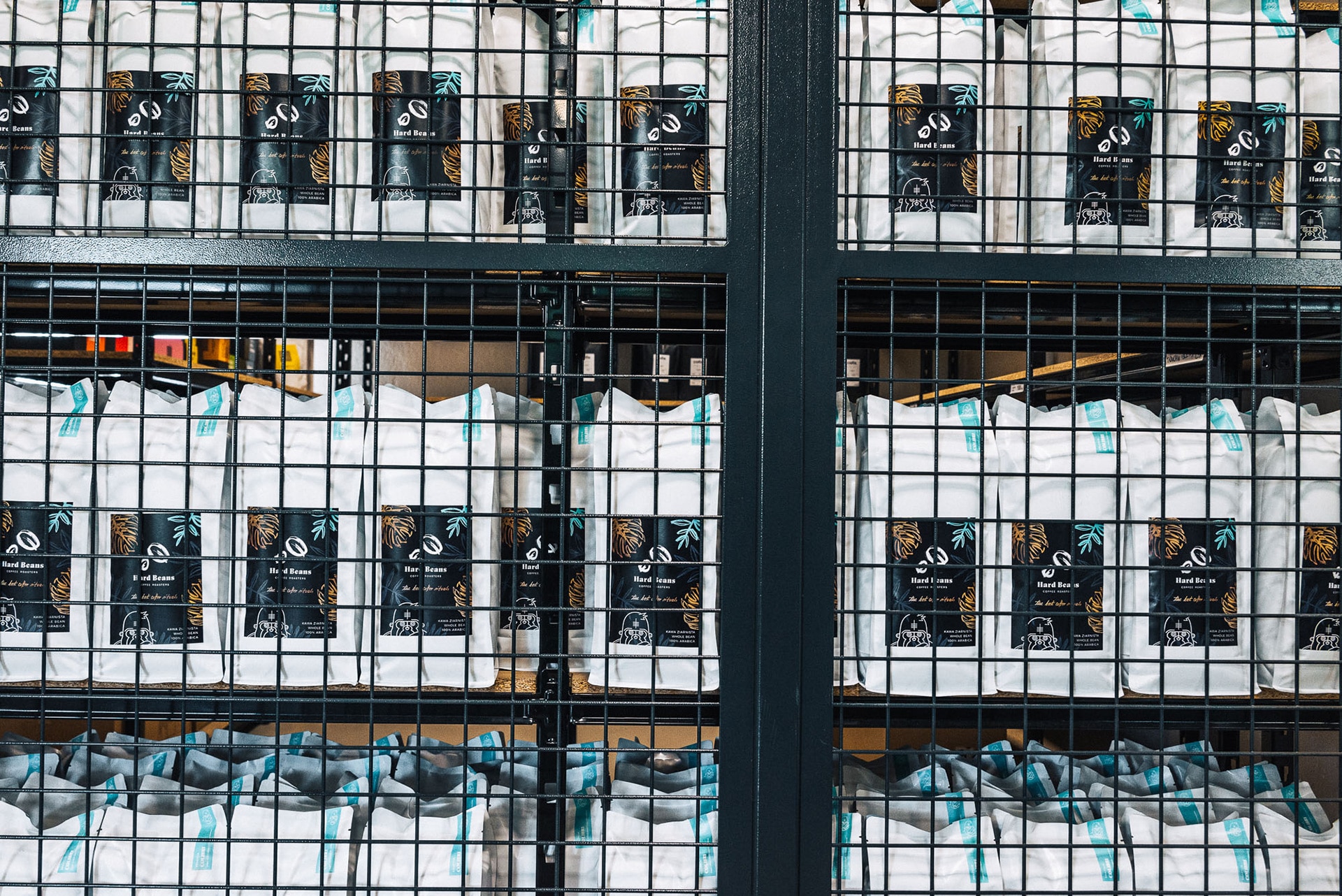
You have a broad selection of coffee offerings, and earlier this year, you launched a traditional Polish coffee blend, Polska Parzucha. Can you tell me more about that?
Yes, it’s our “pandemic coffee” Polska Parzucha, a dark roasted blend of Arabica from Central and South America, inspired by traditional Polish coffee. During the communist era, coffee was a luxury and difficult to get. At home, in offices and restaurants, coffee was served in glasses with a metal holder. You put two spoons of coffee, add boiling water, and coffee is ready. We call it plujka or “Turkish coffee,” but in reality it is not Turkish coffee at all.
Hard Beans Coffee Roasters was a runner-up at the 11th Sprudgie Awards for Best Design/Packaging. What makes your packaging unique?
We want to offer a better experience to our customers, and the packaging is part of that. Our boxes are made from 100% recyclable plastic that looks and feels like paper. They come in 12 different colors (one for every origin country we source from) and each show one of our brand heroes (the alpaca, gorilla, or toucan). We’re also doing prototypes to create recyclable coffee bags to go inside the boxes; they are made from coffee chaff, hopefully we can introduce them soon.
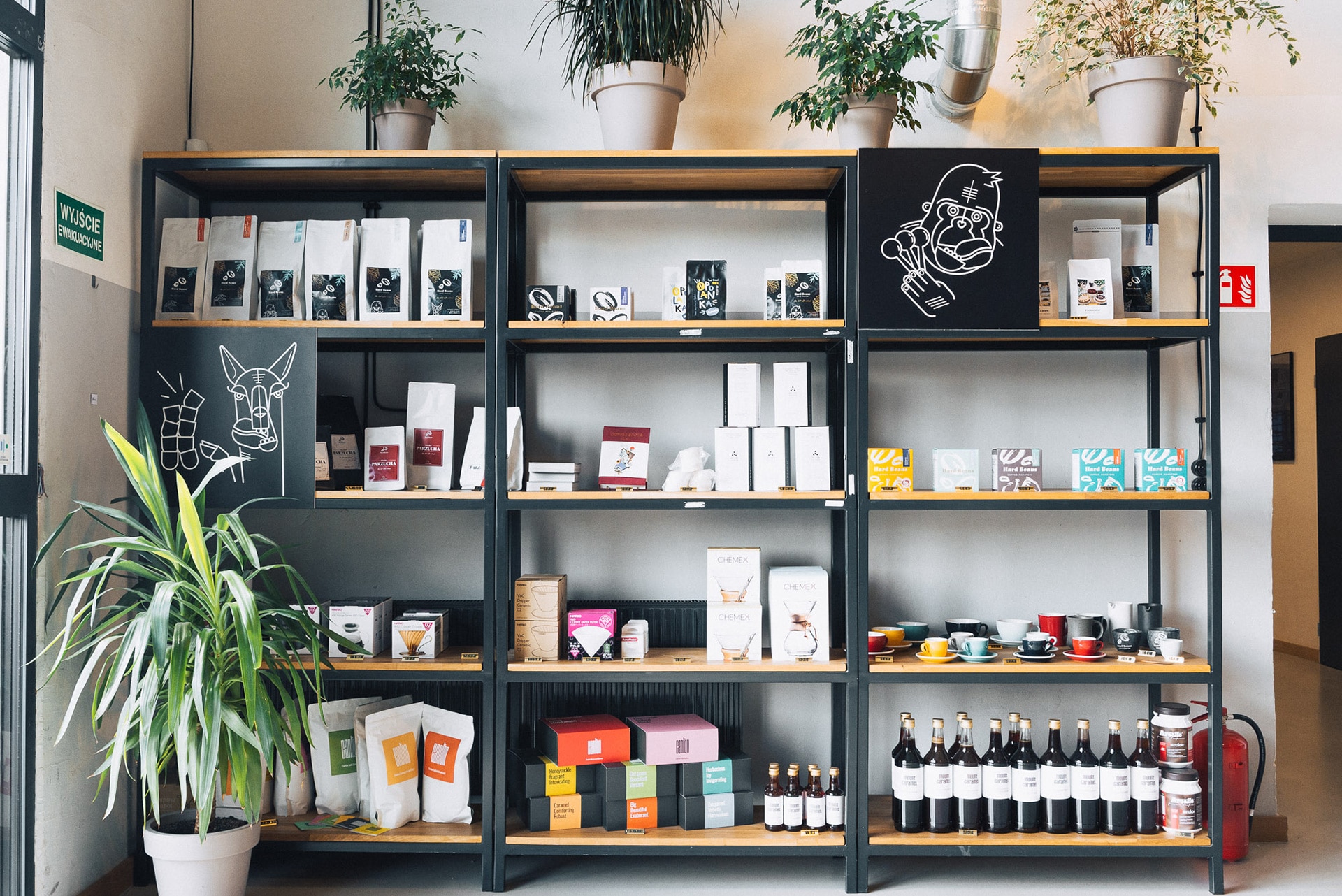
You clearly have passion and talent for organizing coffee events. Will you continue to host coffee events now that your term as Events Coordinator at SCA Poland is over?
Yes! I will continue to organise Pro-Infuzja, a nationwide barista league and coffee competition for barista skills, cup tasting, and latte art, aimed at coffee beginners. Many Polish baristas who competed in Pro-Infuzja have gone on to win titles at national and international levels (including World Barista Champion Agnieszka Rojewska). We had planned six Pro-Infuzja competitions for this year, but then of course the pandemic happened…
Speaking of the pandemic, what impact is COVID-19 having on the business?
When lockdown was introduced in March, offices, restaurants, coffee shops, hotels closed across Poland and Europe, and our business to business sales dropped by over 90%. We started offering free delivery to all our customers, regardless of the size of order, and those orders picked up very quickly. We sold more coffee in the month of April than ever before! Now we are back on track, our B2B business is growing again, but we are waiting to see what happens with the second wave and the threat of more lockdowns.
We also launched a few initiatives to support small Polish coffee roasters and coffee shop owners. #PijeLokalne (“drink local”) is a hashtag to promote buying from Polish coffee roasters. We came up with the idea in mid-March, right after the lockdown started, and we acted really fast on it. Thanks to the hard work of our whole team we produced posters and marketing materials, got the support of the board of SCA Poland, got Coffeedesk involved, and launched the campaign online. It’s been very successful. Through #KawiarnieKontratakują (“cafes strike back”) we donated 15% of every coffee bag we sold during lockdown to small Polish coffee shops. Our customers could choose a shop from a list of 140 and, at the end of each month, we transferred the money to them. We were able to raise 2,000zl in this way. The day after we launched this campaign we received calls from other speciality coffee roasters in Poland like Java and Hayb in Warsaw, who wanted to join.
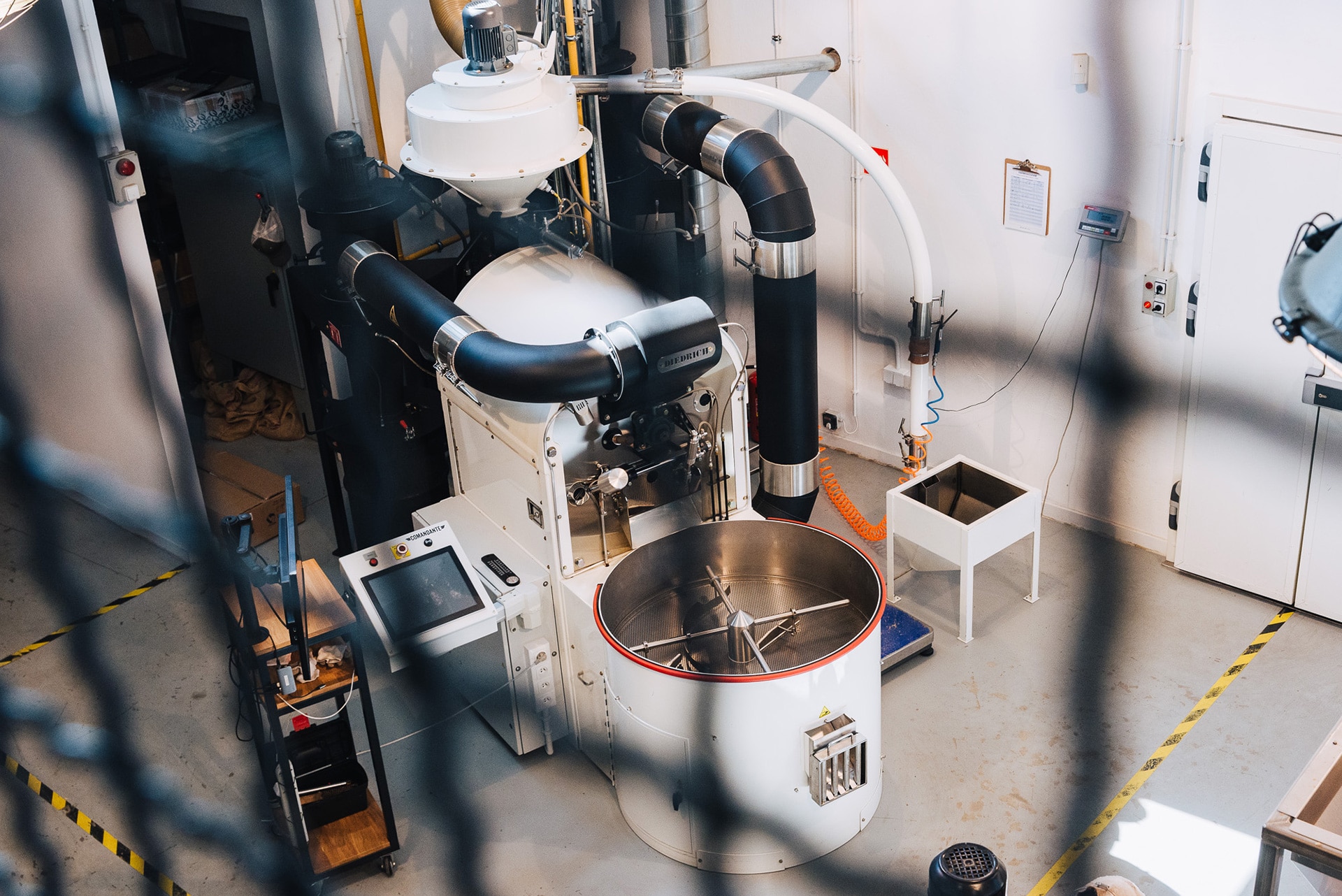
What’s in store for the future of Hard Beans Coffee Roasters?
My goal is to buy only green coffee from small producers and farmers we have a direct relationship with. We have to go through importers sometimes when we want to buy small batches, but still our goal is to be as transparent as possible and share everything about our processing with our customers. We’ve never had any secrets; our Cropster roast lines are not a secret. I believe that supporting other roasters and coffee brands is beneficial for the whole industry. Maybe I am dumb for doing this, but I do believe that’s the best way forward for the coffee industry. That’s the way we’ve been working for ten years (at Kofeina and Hard Beans Coffee Roasters) and we are growing really fast, so we are doing something right.
As a brand, we will continue to expand our product range to deliver not only coffee beans, but also coffee-based beverages. We plan to develop more industrial devices that can be used not only in coffee shops, but also in coffee roasting houses or microbreweries. Our goal is to change the world of coffee by introducing new products and solutions, doing more research, and sharing our results.
Giulia Mule is a Sprudge.com contributor based in Poland. Read more Giulia Mule on Sprudge.









